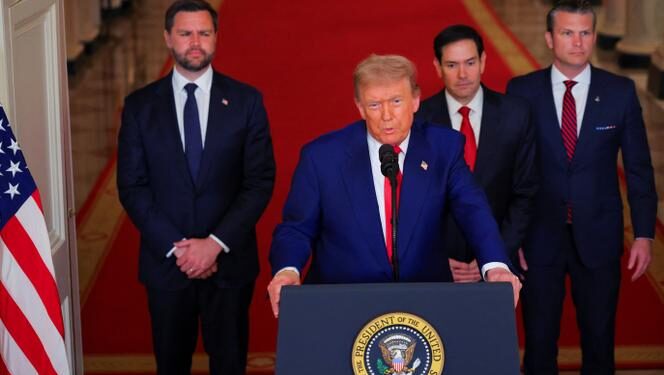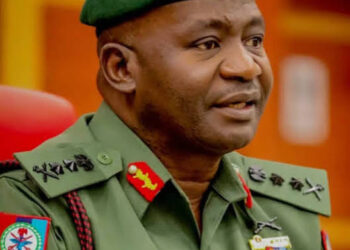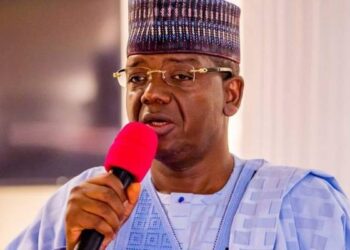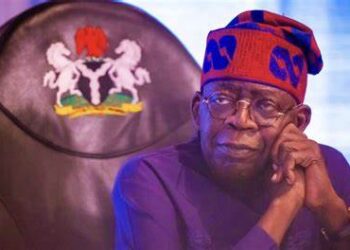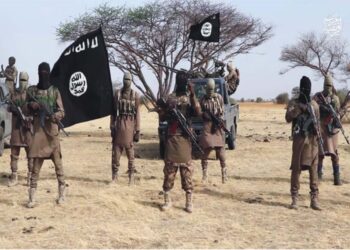The Supreme Council of Islamic Affairs, the umbrella organization representing Nigeria’s Muslim community, has strongly condemned the United States’ designation of Nigeria as a “country of concern” and the subsequent threat of military intervention, insisting that claims of Christian genocide are false and misleading.
In a statement released on Friday, the council characterized the American allegations as a misrepresentation of Nigeria’s security challenges, emphasizing that the violence affecting the country is a national security crisis rather than religiously motivated persecution.
“We reaffirm that there is no ‘Christian genocide’ in Nigeria. For the avoidance of doubt, what Nigeria faces is a complex and tragic perennial security crisis that brings immeasurable pain to all its citizens, regardless of faith or ethnic persuasion,” the statement declared.
The intervention by Nigeria’s leading Islamic body comes as the diplomatic crisis between Nigeria and Washington continues to escalate, with United States President Donald Trump having threatened on Wednesday that American forces could intervene militarily, going into Nigeria “guns-a-blazing to completely wipe out the Islamic terrorists” if the Nigerian government fails to protect Christians.
Trump, who on October 31 redesignated Nigeria as a “country of particular concern,” has instructed the Department of War to prepare for possible military action and warned that any strikes would be “vicious and sweet.” He has also threatened to immediately suspend all American aid and assistance to Nigeria if the alleged killings persist.
However, the Supreme Council of Islamic Affairs pushed back firmly against the narrative that has gained traction in Washington, arguing that reducing Nigeria’s multifaceted security challenges to a story of religious persecution fundamentally misunderstands the nature of the violence.
The council’s statement emphasized that Nigerian Muslims and Christians alike have suffered from terrorism, banditry, kidnapping, and other forms of violent crime that have plagued various regions of the country in recent years. The organization stressed that framing these security challenges as genocide against Christians ignores the reality that victims come from all religious backgrounds.
President Bola Tinubu has also rejected Trump’s characterization, stating in a response issued on Saturday that Nigeria’s constitution protects citizens of all faiths and that the country firmly opposes religious persecution. Tinubu emphasized that his administration since 2023 has maintained active engagement with both Christian and Muslim leaders while working to address security challenges affecting all regions and communities.
The Nigerian government has received international backing from China, whose foreign ministry spokesperson Mao Ning stated on Tuesday that Beijing “firmly opposes any country using religion and human rights as an excuse to interfere in other countries’ internal affairs, and threatening other countries with sanctions and force.”
Presidential aide Bayo Onanuga has similarly disputed the American allegations, writing on social media that “Muslim lives matter too” and insisting that “there is no ongoing slaughter of Christians in Nigeria.” He pointed out that Muslims in various states are equally victims of attacks by extremist groups.
The Director-General of the National Orientation Agency, Lanre Issa-Onilu, went further by comparing Trump’s claims to previous American intelligence failures, specifically citing the false weapons of mass destruction allegations that preceded the 2003 Iraq invasion. “This is not the first time that the intelligence of the United States failed Americans. It failed in Iraq, it turned out that there was no weapon of mass destruction and they apologized. It failed them in Libya and many other instances. So I’m sure this is another error in their intelligence gathering,” Issa-Onilu stated at a security briefing on Monday.
However, the American position has found some support among certain Nigerian Christian groups and international Christian advocacy organizations, which have long claimed that Christian communities, particularly in the Middle Belt region, face disproportionate violence from herder militias and other armed groups.
The controversy has also sparked internal Nigerian debates, with the Muslim Rights Concern accusing the Christian Association of Nigeria of betraying President Tinubu by allegedly amplifying claims of Christian persecution to American authorities despite what MURIC described as the administration’s generous appointment of Christians to key positions.
As the war of words continues, African Democratic Congress chieftain Dele Momodu expressed sympathy for President Tinubu during an appearance on Channels Television on Friday, describing the current moment as an extraordinarily difficult time to lead Nigeria. “I saw him speaking last night, and I must confess that I felt for him because this is not the best time to be the president of Nigeria. He now has to put on the thinking cap for himself, for his team, and for all of us in Nigeria,” Momodu stated.
The Supreme Council of Islamic Affairs’ statement adds another authoritative Nigerian voice rejecting the genocide narrative, potentially strengthening the government’s position as it attempts to manage the most serious bilateral crisis with the United States in recent time. However, with Trump having already instructed military planners to prepare options for intervention, the diplomatic standoff shows no signs of immediate resolution.

